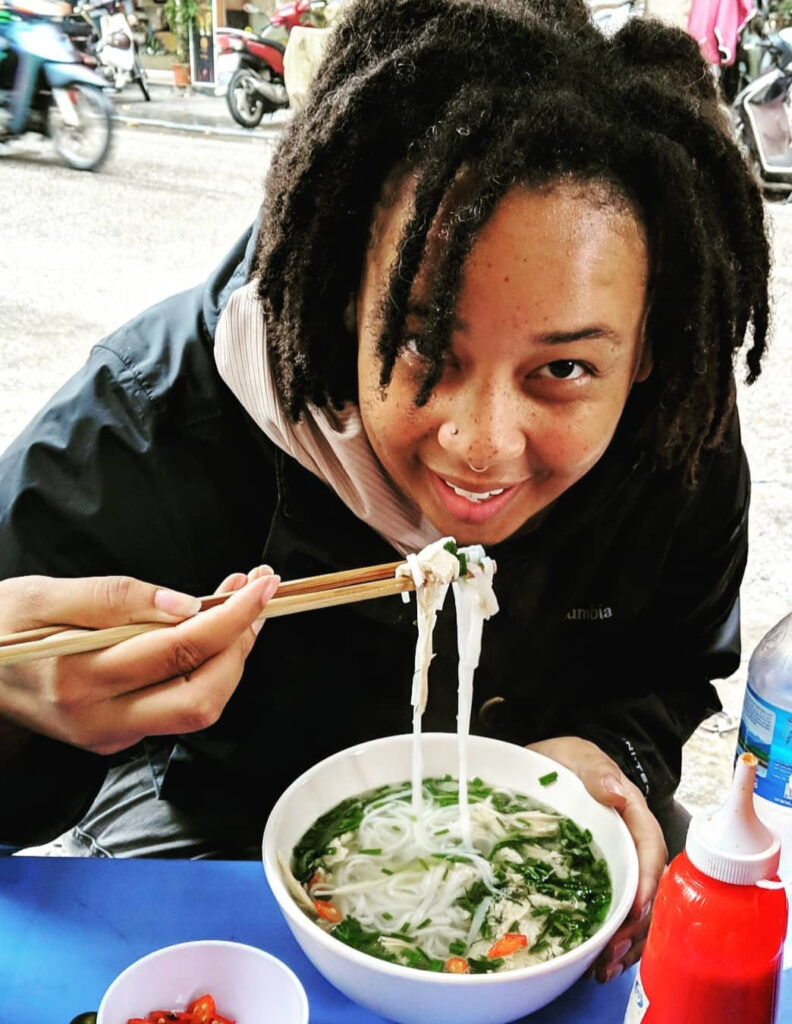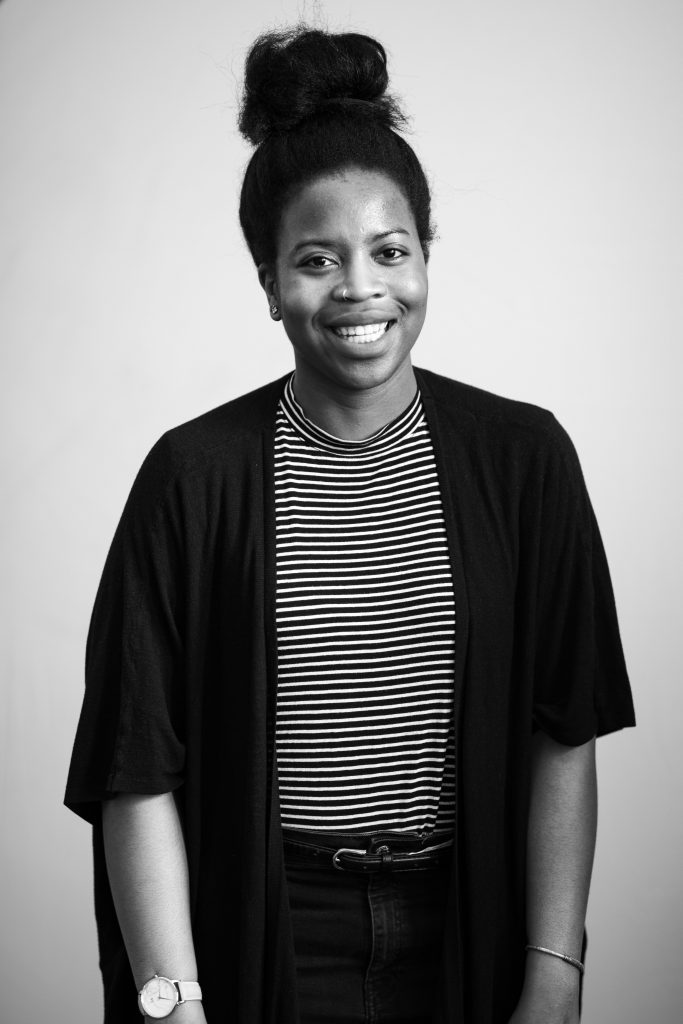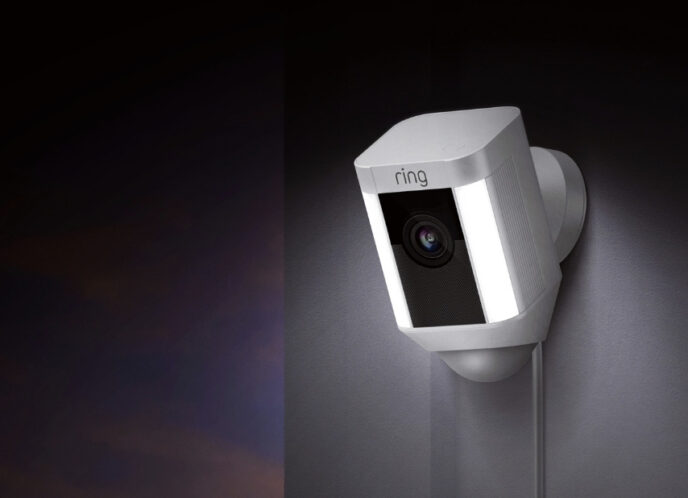Black August is a period of time to remember and reflect upon the dynamic histories of Black resistance in order to push our movements for freedom forward. From the Haitian Revolution to the Nat Turner Rebellion to the Watts Uprisings, this month is one of remembrance and rebellion. This commemorative month began in the 1970s to remember the assassination of George Jackson, a Black Panther and revolutionary. At MediaJustice, we owe so much to political prisoners and freedom fighters who have dedicated their lives to seeing Black liberation through. Learn how Black staff at MediaJustice are honoring Black August.
Note: This blog will be routinely updated throughout the month to include additional staff reflections.
It’s Black August! What does this signify to you?
dddddddddddd

Erin: To me, Black August is a time of rest, self-reflection, and study that centers our most radical and revolutionary ancestors and living collaborators. As former co-chair of the DC Chapter of BYP100, I helped organize my first Black August events a few years ago, and so seeing all the different events being offered this year gives me a lot of warm nostalgic and comradely feelings. It’s also so important to me that this month of reflection is not watered down in efforts to be accessible to a larger more centrist mainstream audience.
Erin Shields, National Organizer

Brandon: Black August to me is an opportunity to practice reflection and intentionality. It’s an opportunity to be thoughtful about where I and you and we fit into the unbroken line of Black generations. Where do we fit between our ancestors and our descendants? What’s our purpose? Who are we called to become? Sitting in the present is like sitting in an estuary, the liminal space between the settling river sediments of our collective past flowing into the endless ocean of opportunities that will be our collective future. Black August is a time to understand our relationship to that lineage and actively rededicate ourselves to participating in shaping that future.
Brandon Forester, National Organizer

D.J.: I first learned about Black August from other Black queer Southerners. They taught me that Black August is a time for political education, deepening and sharpening our commitments to the work of liberation, honoring ancestors whose lineage of Black liberation that we’re in, and finding new ways to escalate the campaigns that we’re currently moving forward. It’s a time to learn from Black liberation struggles that don’t get talked about often, in particular the Black trans & queer ancestors who get written out of Black movement histories. And, it’s a time to fortify ourselves to be as principled and resilient as possible so we can commit to the long haul struggle for Black freedom.
D.J. Hudson, Digital Organizer

Eteng: In the midst of a global pandemic and uprisings across the country and world, Black August reminds me that even when surrounded by relentless crisis, we have to be willing to slow down and reflect in order to sustain ourselves for the long haul. It’s a moment to check in with ourselves, our comrades and our movements to assess how we’re doing and how we need to shift to continue meeting this moment.
Eteng Ettah, Narrative Director
This is a time for intentional study and reflection. For folks interested in learning more about the broader media justice movement, what books and resources would you recommend they read and why?
Brandon: We often think about media and technology in terms of what they look like in the digital age. I was listening to a podcast interview of Leah Penniman of Soul Fire Farms and author of Farming While Black and reflecting on how tending the soil is technology, how cooking is technology. Recipes are like analogue algorithms passed from generation to generation, both media and technology at the same time. Penniman talks about how our ancestral grandmothers braided seeds into their hair before being stolen from our ancestral lands and brought to this land. I’ve also been delighting in Toni Tipton-Martin’s latest history and cook book, “Jubilee: Recipes from Two Centuries of African American Cooking“. It’s made me reflect deeply about that unbroken line that can be traced from those seeds hidden away in braids of desperation and hope to the black-eyed peas I learned to make at my Grandmommy’s feet. Tipton-Martin traces our culinary and cultural heritage from those seeds, secreted away, through the Great Migration to the North and West. And again, in this history, I see my own family’s history. My Grandmommy’s sisters Bessie and Marie who followed their cousins who worked the trains out to Los Angeles from Tupelo and made their living as cooks and caterers (and sometimes hustlers). Tipton-Martin talks about a Eliza’s Cookbook, a compilation of recipes from the Negro Culinary Art Club of Los Angeles that “reject[ed] the reasoning that limits black cooking to privation and making do.” It makes me wonder if my ancestors contributed to those recipes and the ‘American cookbook’. More importantly, it makes me think again about my place in space and time. What seeds am I secreting away to pass on to future generations of Black children? As an organizer, what recipes for liberation will I leave behind for our people?
Eteng: I’d recommend folks check out “Automating Inequality: How High-Tech Tools Profile, Police, and Punish The Poor”. Coincidentally, I was gifted this read at my first MediaJustice event a couple years ago. Its critical analysis directly pushes back on the idea of technology as a neutral tool that can solve any and every societal problem. Virginia Eubanks demonstrates how algorithms used to make automated decisions around who gets access to housing, food and other resources disproportionately and consistently denies Black people our dignity and safety because racial bias is a foundational element of many technologies. Of course, as Black people, we always make a way so I appreciate how the book also illustrates how we build power in a digital age.
Oshen (Events Manager): Black August to me is a time to peer deeply into our or the collective past and current looking glass of Black radical resistance both within the U.S. and globally to summon the clarity and courage needed to assess my/our lifelong duty to dismantle systems of oppression and white supremacy. I am currently reading Weapons of Math Destruction by Cathy O’Neil which is about how big data and algorithms are regulating people’s lives and causing destruction along the way. I recognize this book’s relevance especially now as COVID-19 shifts this economy and major institutions increasing our dependency on technology and social media to stay informed and connected. I also recommend watching the documentary Coded Bias which spotlight how artificial intelligence and facial recognition technology fail to register dark-skinned faces and women accurately and the implications of such tech in making governing decisions while inherently biased.
D. J.: Throughout the uprisings, I’ve been thinking a lot about how much media portrayals of Black protest and Black-led movements shape the dominant narratives we all hear (and many believe) about Black protest. In particular, I’ve been looking at our #ProtectBlackDissent work from a historical perspective. Why is Black dissent treated as this violent, terrifying, random thing, and why is the concept that only “peaceful” Black protest is legitimate and justifiable so embedded in the dominant narrative? I went back to Charles E. Cobb’s “This Nonviolent Stuff’ll Get You Killed” for answers and strongly recommend it to anyone who’s been led to believe that the Civil Rights Movement was all about peaceful, passive Black people magically ending racism by appealing to white sympathies, who willingly put themselves at the mercy of white supremacist violence. Cobb’s book makes it clear this is not at all accurate or true, and that the binary between “nonviolent” and “violent” is a recent invention that doesn’t truly reflect what Black activists believed then, nor should it be the tiny box we stuff Black activism into now. He really re-centers the agency and humanity of the Black people who believed in many different ways to get free, and reveals how much history books have shrunk the story in order to portray Black protest as something simplistic and comforting. It never was. He points out that while nonviolence as a lifestyle and redemptive suffering were theological and spiritual concepts that a small minority of Black leaders believed in, there’s a reason 21st century retellings of the 1960s project that belief system onto all Black protesters from that time (and now this one). It’s in part because most media coverage at the time recorded the experience of spokesmen who were frequently middle class, academic clergymen to the exclusion of the insights and experiences of poor Black folks, women, queer & trans people, and Black people who didn’t see armed self-defense as a political statement, but as necessity for surviving the Jim Crow South. Our movements are being criminalized now because of how our movements in the past have been whitewashed and misinterpreted. It’s a fascinating read that really upends a lot of false narratives that uphold the demonization of Black protest and Black protesters by comparing us to a false expectation of “peaceful.” By definition, protest is an intentional disruption, and it’s as complex as the people who make it happen. And, whenever Black people disrupt, mainstream media and politics looks for ways to portray us and our dissent as enactors of violence, looking right past the violence against us that we’re trying to stop.
Erin: For those just beginning to learn about the media justice movement, a good grounding text to start with is Joe Torres and Juan Gonzales’ book, “News For All The People: The Epic Story Of Race And The American Media”. Black, brown, and indigenous communities have extremely rich but often lesser known histories of how we in the face of extreme violence and repression built out and utilized our own media platforms to inform and mobilize our communities.
What areas of your work are you interested in learning more about?
Eteng: I’m always interested in deepening my analysis around how Black people create, disseminate and sustain our narratives, stories, histories and futures. We’re born storytellers and are dedicated to ensuring our ancestors’ stories reach our future generations. In what ways have we and will we continue shifting and shaping our narratives in service to ourselves and our liberation movements and not in service of the white gaze? The stories of Black lived experiences continue to thrive most when told and shared outside of the confines of the state. I’m excited about the creative ways we’ll continue to do this as our world continues to become more and more digitized.
Erin: I’m very curious about the links between how surveillance tools are used and tested abroad then imported back into the U.S. to scale up surveillance against domestic dissent. In this moment, returning from 7 months abroad, how can I sharpen my anti-imperialist analysis? Right now, leftist movements are demanding we #DefundPolice. How do we better understand that the U.S. is the “police” of the world and that our surveillance and militaristic activities abroad must also be defunded. I’m looking for good resources on these topics and how organizers have been addressing these questions since Reconstruction and onwards.
Brandon: I want to know more about how media and ownership of media technologies have contributed to our oppression. Atrocity and propaganda walk hand in hand down the road of history, but our liberation is also bound with our stories and narratives. Liberation can’t exist without storytellers. In this moment where a conversation about reparations feels more possible, or maybe just less impossible, how can we achieve truth and reconciliation without authoring and embodying our own stories? How can we ever seek repair without gaining ownership of our stories and the media that archives and disseminates our collective narrative? I need to spend more time with works like “News for All the People” by Joseph Torres and Juan González. In many ways it’s the story of how our stories have been suppressed, hidden and taken from us. It’s so important because the stories we tell ourselves about our past and who we are and who we were will dictate what we envision about who we can be and what will ultimately become of us.
D.J.: I want to better understand how the experience of knowing you’re being surveilled impacts other Black activists and organizers. I know what it’s like for myself, and it’s a huge part of why I wanted to work for MediaJustice. I’ve noticed how much fear and helplessness arises when the topic gets brought up. For me, it was because the specter of COINTELPRO made being surveilled feel like this awful, pervasive thing that you knew was happening but couldn’t do anything about. But we can do something, a lot of somethings. As Baldwin teaches us, nothing can be changed until it is faced. And I don’t blame anyone for not wanting to turn and face this dystopian panopticon-hydra that we all know considers Black movements a threat to be punished and neutralized. It’s a lot! So I’m curious about what kinds of conversations, information, action steps, and strategies will be compelling enough to invite Black folks to look at the fact of surveillance head-on, and break that feeling of helplessness and fear apart by breaking what I’ve heard Myaisha name as the “culture of secrecy”. This culture is exactly what allows the surveillance state to continue to loom over us all with impunity. Black people have always been a people who turn and face and then dismantle massive systems of oppression and violence. And we always win, transforming the world for the better in the process. Even if it takes us centuries. I’m ready to do that with the surveillance state, alongside other Black folks who are sick and tired of being treated as a threat for merely wanting to get free. And I know that we can do it.
This is a time to learn from our Black ancestors to inform how we continue fighting for freedom. What Black leader(s) do you recommend folks read up on?
D. J.: During the screening of Unapologetic, I noticed an Audre Lorde quote in the background of one scene that led me back to her 1982 speech “Learning From the 60’s.” You know how sometimes you hear something many times but it comes back again when you’ve lived life a little and all of a sudden it hits different? Whewwww that speech is a must-read for this moment. Ancestor Audre is definitely here to teach us some things if we’re ready to listen. That speech is brimming with gems like “survival is not a theory” and the more well-known “There is no such thing as a single-issue struggle because we do not live single-issue lives.” There’s a lot of people still working to understand why Black trans & queer people are so central to the movement we’re in right now. There’s people trying to understand where the demand to #DefundPolice came from and why reform isn’t enough for so many of us. There’s people who are still looking for the charismatic cisgender, heterosexual men to be “the leader” of this movement while it passes them by. Those folks and anyone who wants to bring them (and their questions) into this movement we’re living through now should listen closely to Audre Lorde (Sister Outsider is an exceptional place to start; it includes “Learning From the 60’s”).
Erin: Many years ago, I read writing from Claudia Jones, a Black woman activist, U.S. Communist Party member, immigrant, and journalist who was deported for her political activity in this country. Specifically her piece, “An End To The Neglect of the Problems of the Negro Woman!”, shaped my early understanding of intersectionality as a framework. And I will always recommend people read the Combahee River Collective Statement, a foundational Black feminist text that continues to shape my political identity as a Black woman.
Brandon: Audre Lorde and James Baldwin are too obvious… but no less necessary. If you can’t hear Baldwin’s voice and cadence speaking to you directly through time when you read his words on the page, you’re doing it wrong. As a less obvious answer and someone I’m just dipping my toes into, I’ll offer Amílcar Cabral. He deeply understood what was necessary for revolution and the important role that culture plays in achieving revolution.
Eteng: I forever want to give flowers to Ida B. Wells, an amazing media activist that I deeply admire and owe a lot to. “The people must know before they can act.” In the 1890s, her investigative journalism documenting mass lynchings in this country paved the way for understanding the sheer power and influence of the press. There’s a lot to be learned from her about the importance of us being in control of how our stories are distributed and disseminated.
Oshen: I am forever indebted to James “Uncle Jimmy” Baldwin for increasing my literacy around Black radical tradition and helping me develop an unapologetic pride to steer full speed away from the white gaze, which gives me a strong sense of dignity within myself. You will need this pride, beautiful people, as you continue the fight for freedom. “Ain’t I A Woman” by Bell Hooks reminds me of the ever current moment of what happens when reformists are steering the ship towards a more confined “liberation” within the system we seek to and must eliminate.



